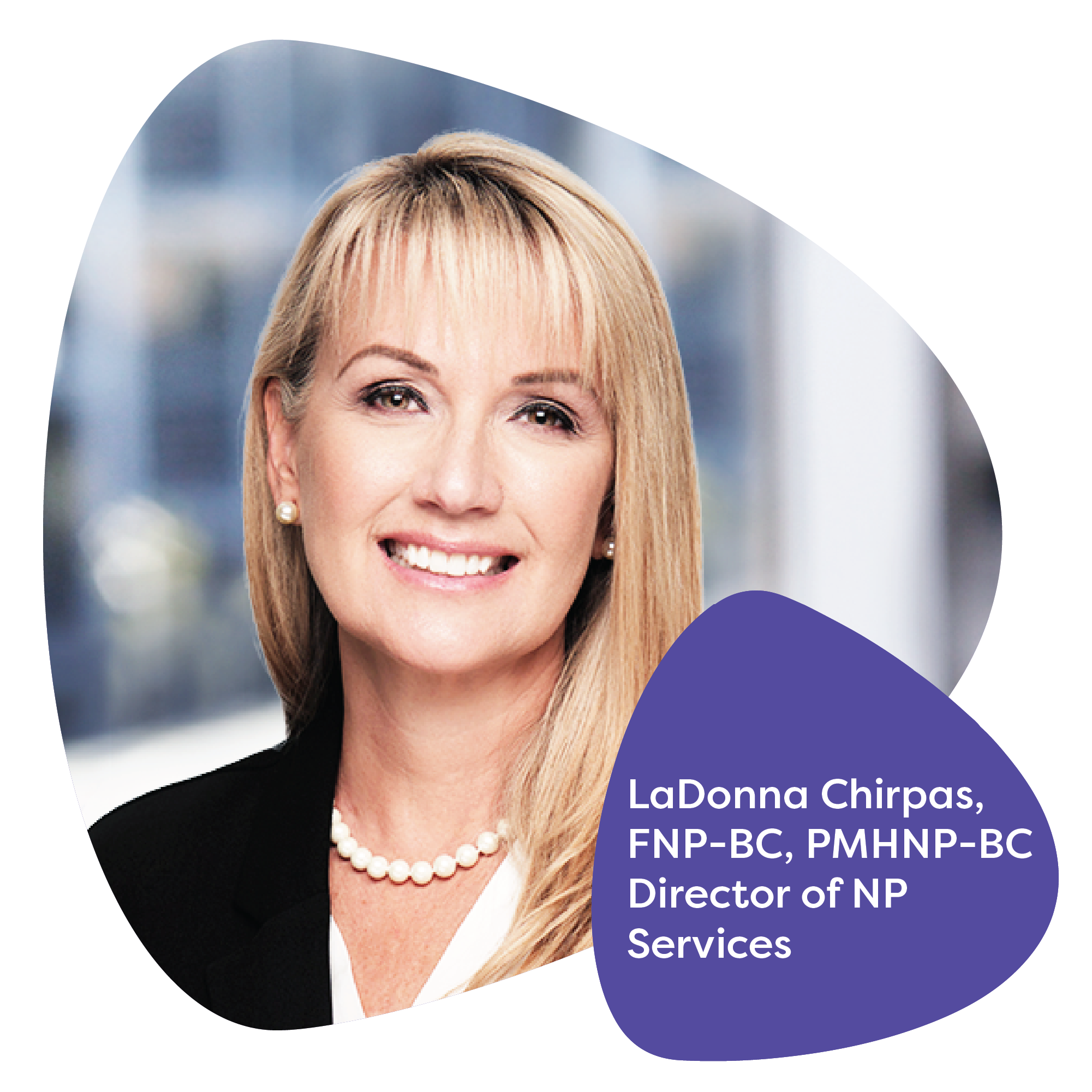Psychiatric Mental Health Nurse Practitioners (PMHNPs) view behavioral health integration (BHI) as a model of optimism and hope. As a PMHNP, and Director of Nurse Practitioner Services at Iris Telehealth, I see these clinicians playing a vital role in shaping the future of BHI and improving the lives of countless individuals.
PMHNPs are at the forefront of a transformative movement in healthcare
The BHI model emphasizes the interconnectedness of behavioral and physical health, recognizing that treating one without addressing the other can lead to suboptimal outcomes. PMHNPs, with their unique blend of psychiatric and nursing expertise, are uniquely positioned to lead this charge.

From a PMHNP perspective, BHI is not just a trend; it’s a necessity. PMHNPs see firsthand the impact of behavioral health conditions on physical health, and vice versa.
For example, a patient with chronic pain might also struggle with depression or anxiety, which can exacerbate their physical symptoms and hinder recovery.
Dr. Thomas Milam, Chief Medical Officer, Iris Telehealth
Treating a behavioral health condition doesn’t always have a clear or obvious path for medication and treatment. However, by leveraging a virtual behavioral health solution, PCPs can ensure their patients are getting the help they need, and healthcare organizations can ensure financially sustainable delivery of behavioral health services.
By integrating behavioral health and primary care settings, PMHNPs can address both aspects of the patient’s well-being — leading to improved outcomes and overall quality of life.
PMHNPs facilitate collaboration, advocacy, and education
PMHNPs can address a wide range of needs across both health systems and community organizations, making them a key player in an integrated behavioral health model.
Here are a few of the functions PMHNPs can help address at an organization:
- Assessment and Diagnosis: PMHNPs conduct comprehensive assessments to identify and diagnose mental health conditions, often co-occurring with physical ailments.
- Treatment Planning and Implementation: They develop personalized treatment plans that address both mental and physical health needs, utilizing various therapeutic modalities such as medication management, psychotherapy, and lifestyle interventions.
- Collaboration: PMHNPs work collaboratively with primary care providers, specialists, and other members of the healthcare team to ensure coordinated and comprehensive care.
- Advocacy: They advocate for patients’ mental health needs within the healthcare system, working to reduce stigma and improve access to care.
- Education: PMHNPs educate patients, families, and communities about mental health and the importance of BHI in achieving optimal health outcomes.
Iris PMHNPs partner with healthcare systems to provide behavioral health integration for holistic healthcare. Because of their help, more people get the holistic care they need.
Collaboration between PMHNPs and on-site providers creates a powerful care strategy
PMHNP collaboration with other on-site providers leads to significant improvements behavioral health outcomes. With their diverse educational backgrounds and wide variety of trainings, they’re experts in delivering effective behavioral health care.
In a care team setting, PMHNPs become a trusted person other providers can lean on for expertise and guidance.
Here are a few ways PMHNPs partner with various provider types:
- Physicians: PMHNPs work closely with physicians to ensure a holistic approach to patient care. We share information about mental health conditions that may be impacting physical health and vice versa. This allows for coordinated treatment plans that address both aspects effectively.
- Therapists: Therapists provide psychotherapy, while PMHNPs can offer medication management. This combined approach tackles BHI from multiple angles. PMHNPs can consult with therapists to understand a patient’s progress and adjust medication as needed. Therapists, in turn, can tailor their interventions based on the medications a patient is taking.
- Case Managers: Case managers address the social determinants of mental health, such as housing, employment, and social support. PMHNPs collaborate with them to identify social stressors that may be worsening a patient’s condition. Case managers can then connect patients with resources to address these issues, promoting better BHI.
PMHNP collaboration with other on-site providers is a powerful strategy for achieving better BHI. By working together, we can provide more comprehensive, coordinated, and patient-centered care, leading to improved overall mental health outcomes.
Where Iris Telehealth fits in
If you’d like to learn more about the role PMHNPs can help move your organization towards an integrated behavioral health model, please contact us today.
You can also read this blog to hear more about how PMHNPs can serve as a strategic benefit for your organization.




